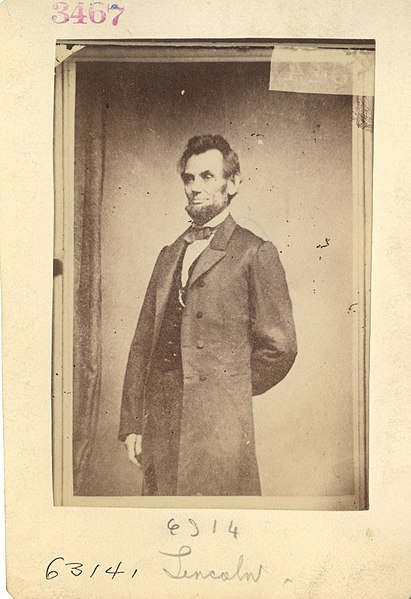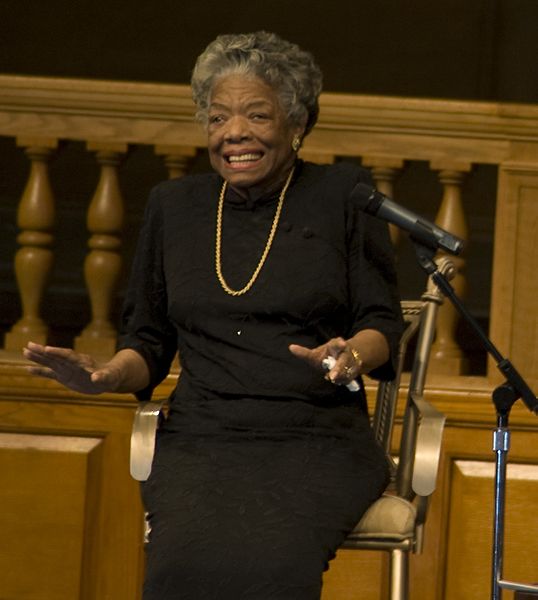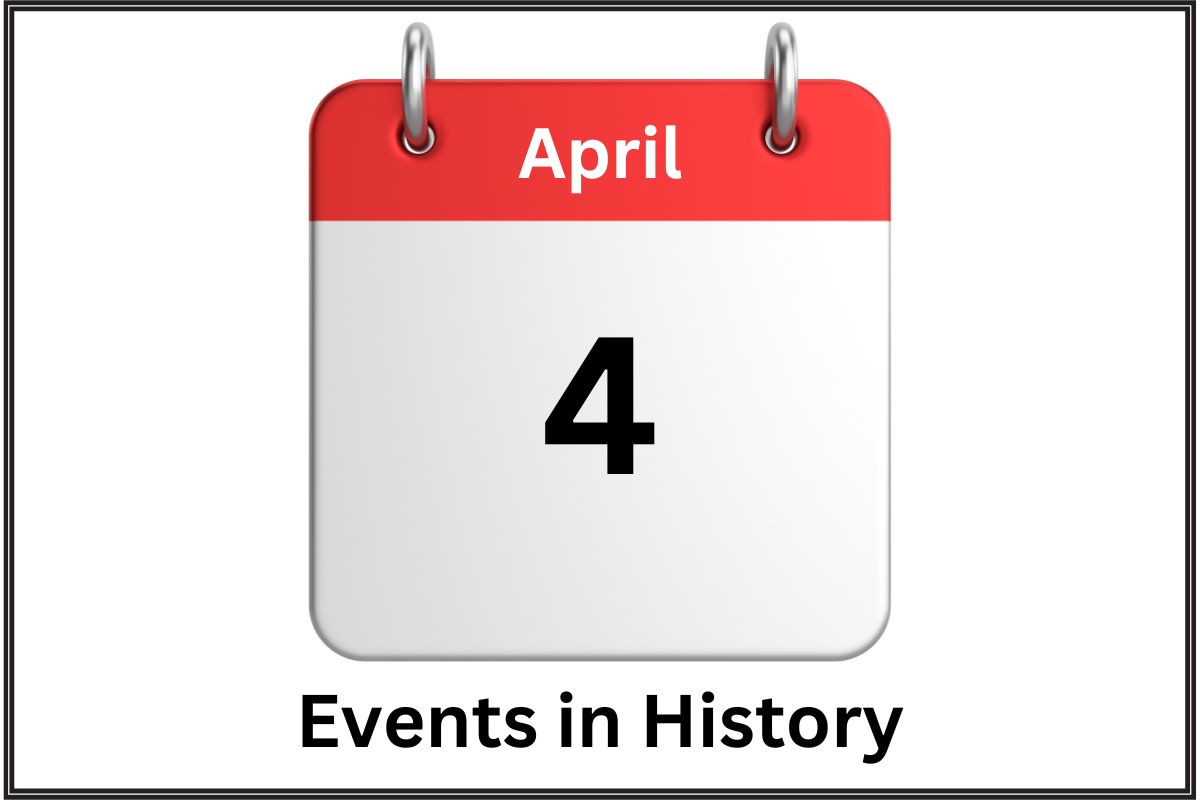This article provides a chronological exploration of twenty significant historical events that occurred on April 4th, spanning from the 16th century to the early 21st century.
It delves into a diverse array of milestones across various fields such as exploration, politics, literature, civil rights, science, and international relations.
From Sir Francis Drake’s knighthood for his circumnavigation of the globe to the establishment of NATO and the signing of the Arms Trade Treaty, this article showcases the breadth of human achievement and the pivotal moments that have shaped our modern world.
April 4th Events in History
581 – Sir Francis Drake is knighted for completing a circumnavigation of the world
Sir Francis Drake, an English sea captain, privateer, navigator, slaver, and politician of the Elizabethan era, completed the second circumnavigation of the world in a single expedition, from 1577 to 1580. He was knighted by Queen Elizabeth I upon his triumphant return.
Also Read: April 3 – On this Day in History
His voyage was also a treasure-hunting mission; notably, he raided Spanish holdings along the Pacific coast of the Americas. Drake’s successful circumnavigation significantly bolstered English maritime power and was a key early event in the establishment of the British Empire.

1721 – Sir Robert Walpole becomes the first Prime Minister of Great Britain (de facto)
Although the title was not used at the time, Sir Robert Walpole is recognized as the de facto first Prime Minister of Great Britain. His appointment as First Lord of the Treasury in 1721 is often considered the beginning of the office of the Prime Minister.
Also Read: April 5th Events in History
Walpole’s tenure, which lasted until 1742, remains the longest in British history. He was a skilled political strategist who managed to maintain control over both the government and the monarchy, largely shaping the direction of the British parliamentary system.
1818 – The United States Congress adopts the flag of the United States with 13 red and white stripes and one star for each state (then 20)
On April 4, 1818, an act of the United States Congress established that the flag of the United States be 13 stripes, alternate red and white, and that the Union be 20 stars, white in a blue field.
This was in response to the previous practice of adding a stripe and a star for each new state, which was becoming unwieldy. The act provided for the addition of one star for each new state, to be added to the flag on the 4th of July following the state’s admission to the Union.
1841 – President William Henry Harrison dies of pneumonia, becoming the first U.S. president to die in office
William Henry Harrison, the ninth President of the United States, died of pneumonia on April 4, 1841, just 31 days after taking office. His death marked the first time a sitting president died in office. Harrison’s inauguration speech, the longest in American history, was delivered in cold, wet weather without adequate clothing, which led to his illness.
His death precipitated a brief constitutional crisis regarding succession, eventually leading to Vice President John Tyler assuming the presidency, establishing the precedent that the Vice President becomes President upon the death of the President.
1850 – Los Angeles is incorporated as a city
On April 4, 1850, Los Angeles was officially incorporated as a city by the California State Legislature. At the time, Los Angeles was a small town with a population of about 1,600 people, known for its diverse population and agricultural economy.
The incorporation came shortly after the end of the Mexican-American War and the signing of the Treaty of Guadalupe Hidalgo, which transferred California from Mexico to the United States. Los Angeles’s incorporation as a city was a key step in its development into one of the largest and most influential cities in the United States.
1865 – Abraham Lincoln visits Richmond, Virginia, after the city falls to the Union forces
On April 4, 1865, just days after the Confederate capital of Richmond, Virginia, fell to Union forces, President Abraham Lincoln made a historic visit to the city. The visit was symbolic and highly significant, as it represented the impending end of the Civil War and the Union’s victory. Lincoln walked through the city, greeted by newly freed African Americans and Union supporters.
His visit emphasized his commitment to healing and reunifying the nation, showcasing his moderate approach to the South’s reconstruction. This moment is often cited as a poignant example of Lincoln’s compassion and leadership during one of America’s most tumultuous periods.

1887 – Argonia, Kansas elects Susanna M. Salter as the first female mayor in the United States
Susanna M. Salter was elected the mayor of Argonia, Kansas, on April 4, 1887, becoming the first female mayor in the United States. Her election was initially considered by some of her male counterparts as a joke or a way to discourage women from participating in politics.
However, Salter took her role seriously and served competently for a year, proving skeptics wrong. Her election marked a significant milestone in the women’s suffrage movement, demonstrating that women could effectively participate in and contribute to political life.
1905 – In India, an earthquake near Kangra kills more than 20,000
The Kangra earthquake struck the Kangra Valley and the surrounding areas in the North Indian state of Himachal Pradesh on April 4, 1905. Measuring 7.8 on the Richter scale, it is one of the deadliest earthquakes in India’s history, resulting in the deaths of more than 20,000 people.
The earthquake caused extensive damage to buildings and infrastructure, with the town of Kangra being almost completely destroyed. This disaster highlighted the need for improved earthquake preparedness and building practices in seismic zones.
1928 – Maya Angelou, American author, poet, and activist, was born
Born on April 4, 1928, Maya Angelou was an influential American author, poet, and civil rights activist known for her lyrical prose and powerful advocacy. Her autobiography, “I Know Why the Caged Bird Sings,” is her most famous work, detailing her childhood and young adult years, facing racism, trauma, and recovery.
Angelou’s contributions to literature and civil rights have made her a revered figure in American culture. Her work continues to inspire generations with its themes of resilience, empowerment, and the quest for freedom and equality.

1949 – NATO is established by the United States, Canada, and several Western European nations to provide collective security against the Soviet Union
The North Atlantic Treaty Organization (NATO) was established on April 4, 1949, by the United States, Canada, and several Western European nations. This military alliance was created in the aftermath of World War II, primarily to provide collective defense against the Soviet Union’s expansionist policies and to ensure peace in Europe.
The founding treaty articulated that an armed attack against one or more of the members would be considered an attack against them all, thereby committing the members to mutual defense. NATO played a crucial role during the Cold War, serving as a central forum for military cooperation among Western nations and continues to play a significant role in global security dynamics.
1960 – Senegal achieves independence from France
On April 4, 1960, Senegal gained its independence from France after being a French colony for over a century. This marked a significant moment in African colonial history, as Senegal was among the first African nations to gain independence in the wave of decolonization that swept the continent in the 1960s.
Léopold Sédar Senghor, a noted poet, philosopher, and political leader, became the country’s first president. Senghor’s leadership and vision for Senegal were instrumental in the country’s early years of independence, emphasizing cultural identity, socialism, and a move towards economic development.
1968 – Martin Luther King Jr. is assassinated by James Earl Ray at a motel in Memphis, Tennessee
On April 4, 1968, Dr. Martin Luther King Jr., the prominent leader of the American civil rights movement, was assassinated at the Lorraine Motel in Memphis, Tennessee. King was in Memphis to support a sanitation workers’ strike and was preparing to lead a protest march.
His assassination sparked riots and mourning across the country, profoundly affecting the national discourse on civil rights and equality. King’s legacy of non-violent protest and his dream of an America free of racial discrimination continue to inspire movements for justice and equality globally.
1973 – The World Trade Center in New York is officially dedicated
The World Trade Center, an iconic complex of buildings in Lower Manhattan, New York City, was officially dedicated on April 4, 1973. It included the Twin Towers, which were among the tallest buildings in the world at the time of their completion.
The World Trade Center became a symbol of American economic strength and a hub for international business and trade. Tragically, the towers were destroyed in the terrorist attacks of September 11, 2001.
The site has since been rebuilt with the new One World Trade Center and the National September 11 Memorial & Museum, serving as a tribute to the victims and a testament to resilience.
1975 – Microsoft is founded by Bill Gates and Paul Allen in Albuquerque, New Mexico
Microsoft Corporation, one of the world’s leading technology companies, was founded by Bill Gates and Paul Allen on April 4, 1975, in Albuquerque, New Mexico. Initially, Microsoft focused on developing and selling BASIC interpreters for the Altair 8800, an early personal computer.
The company’s vision and innovative products eventually led it to become a key player in the personal computing revolution. Microsoft’s Windows operating system and Office productivity suite became ubiquitous, fundamentally changing the way people interact with technology in their daily lives and work.
1979 – Zulfikar Ali Bhutto, the Prime Minister of Pakistan, is executed by hanging
Zulfikar Ali Bhutto, the 9th Prime Minister of Pakistan and a leading politician, was executed on April 4, 1979, after being deposed in a military coup. Bhutto was the founder of the Pakistan People’s Party (PPP) and served as Prime Minister from 1973 to 1977.
His government is credited with enacting widespread social and economic reforms but also faced criticism for political repression. Following a controversial trial, Bhutto was found guilty of conspiracy to murder a political opponent, a charge that has been widely criticized as politically motivated. His execution marked a turbulent period in Pakistan’s political history, leading to years of military rule.
1983 – The Space Shuttle Challenger makes its maiden voyage into space (STS-6)
On April 4, 1983, the Space Shuttle Challenger embarked on its maiden voyage, designated STS-6, marking a significant milestone in space exploration. Launched from Kennedy Space Center, the mission demonstrated the shuttle’s capabilities for space travel and satellite deployment.
STS-6 was notable for deploying the first Tracking and Data Relay Satellite (TDRS), which significantly improved communication with orbiting spacecraft. The mission also featured the first spacewalk of the Space Shuttle program. Unfortunately, the Challenger was later lost in a tragic accident in 1986, but STS-6 remains a landmark in the history of space exploration.
1984 – President Ronald Reagan calls for an international ban on chemical weapons
On April 4, 1984, President Ronald Reagan made a significant policy speech calling for an international ban on chemical weapons. This was in response to growing concerns about the proliferation and use of chemical weapons in conflicts around the world.
Reagan’s call aimed to initiate global discussions and agreements to prevent the use of such weapons, reflecting the international community’s desire to address and mitigate the threats posed by chemical warfare.
The efforts to ban chemical weapons eventually led to the Chemical Weapons Convention (CWC) in 1993, which prohibits the development, production, acquisition, stockpiling, retention, transfer, or use of chemical weapons.
1991 – Senator John Heinz of Pennsylvania and six others are killed in a plane crash
On April 4, 1991, Senator H. John Heinz III, a prominent member of the United States Senate from Pennsylvania, was killed in a tragic plane crash. The accident occurred when a collision took place between the senator’s chartered plane and a helicopter over an elementary school in Merion, Pennsylvania.
The collision resulted in the deaths of Senator Heinz and six others, including two children on the ground. Senator Heinz was known for his moderate political views and his work on health care, the environment, and international trade. His untimely death was a significant loss to the Senate and the nation.
2002 – The Angolan government and UNITA rebels sign a peace treaty ending the Angolan Civil War
The Angolan Civil War, which began in 1975 shortly after Angola’s independence from Portugal, finally came to an end with the signing of a peace treaty on April 4, 2002. The conflict involved the Angolan government and the National Union for the Total Independence of Angola (UNITA) rebels.
The war was characterized by its longevity and the involvement of foreign powers and had devastating effects on Angola’s population and infrastructure. The peace treaty marked the beginning of a new era for Angola, initiating processes of national reconciliation, reconstruction, and development in a country rich in natural resources but scarred by decades of conflict.
2013 – More than 70 countries sign the Arms Trade Treaty in an effort to regulate the international trade of conventional weapons
On April 4, 2013, more than 70 countries signed the Arms Trade Treaty (ATT) at a ceremony at the United Nations, aimed at regulating the international trade in conventional arms, from small arms to battle tanks, combat aircraft, and warships. The treaty seeks to prevent and eradicate illicit trade and diversion of conventional arms by establishing international standards governing arms transfers.
The ATT also aims to reduce human suffering caused by illegal and irresponsible arms transfers, promote cooperation, transparency, and responsible action by and among states. It was a landmark in efforts to control the flow of arms across borders and prevent their diversion into the illicit market, where they could exacerbate conflict, support terrorism, or contribute to violations of human rights.
